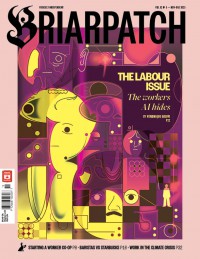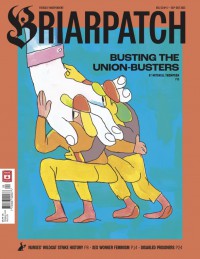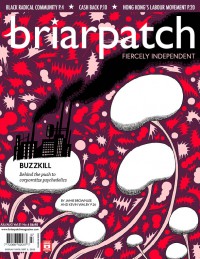-
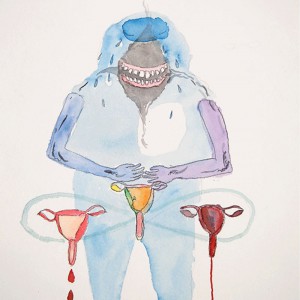 Magazine
MagazineFreedom of (hate) speech
A new generation of anti-choice groups is establishing a reputation for itself on Canadian campuses, with increasingly visible tactics that many pro-choice activists call discriminatory, harassing and hateful. In response, student unions and pro-choice groups have mobilized to prevent anti-choice presentations from taking place on campus and anti-choice groups from gaining club status.
-
 Magazine
MagazineExiled for love
Arsham Parsi is a tireless organizer for queer rights, both internationally and in his native Iran. He is proud to call Canada home, but in the wake of proposed changes to Canada’s refugee status determination system and the elimination of any reference to gay rights in the new version of Canada’s citizenship guide, some wonder whether Parsi would be admitted to this country if he claimed asylum here today.
-
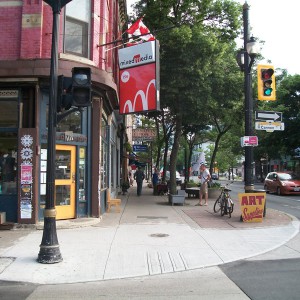 Magazine
MagazineCreative class struggle
Two downtown neighbourhoods in Hamilton, Ontario – James St. North and Landsdale – have recently been the site of several skirmishes in a gentrification war waged in the media, art galleries and on the streets themselves.
-
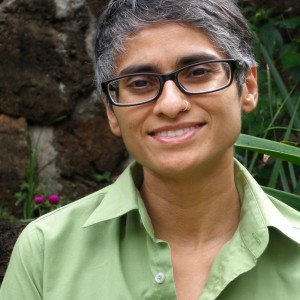 Magazine
MagazineSex work, migration and anti-trafficking
Nandita Sharma is an activist, scholar, and the author of Home Economics: Nationalism and the Making of ‘Migrant Workers’ in Canada (University of Toronto Press, 2006), and “Anti-Trafficking Rhetoric and the Making of a Global Apartheid” (_NWSA #17, 2005).
-
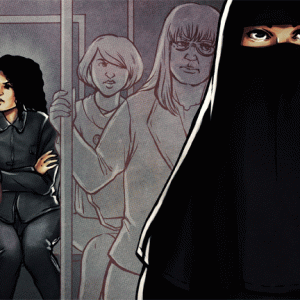 Magazine
MagazineBlanket condemnations
The burqa, chador or niqab (henceforth used interchangeably), a loose-fitting robe worn by some Muslim women that covers the body from head to toe, is one of the most powerful symbols of women’s subjugation under Islam. This garb is often presented as an existential threat to the West, capable of destabilizing the very foundations of our liberal democracies.
-
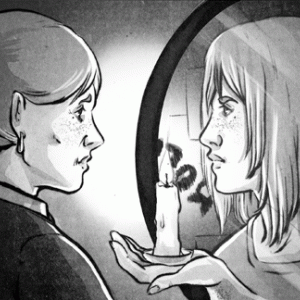 Magazine
MagazineWhen we were feminists
The day after the reunion, the subject line of Kelly’s email reads: “Did you hear?” On August 4, 2009, the same night as four university girlfriends and I had gathered for a 20-year reunion, a man walked into a gym in Bridgeville, Pennsylvania, and opened fire. The coincidence is surreal. My undergraduate girlfriends and I had planned the reunion as a memorial of sorts to mark the 20th anniversary of the Montreal Massacre.
-
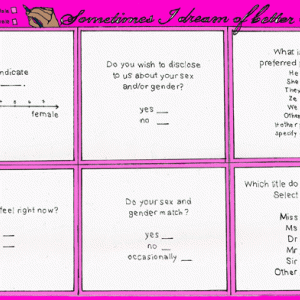 Magazine
MagazineFrom invisibility to stability
The first step toward addressing an issue is to make it visible. An alcoholic will fail to get sober until he or she admits to having a problem. Slapping around one’s wife was not a punishable offence until it became socially and legally recognized as domestic violence. Visibility is gained through definition, and with visibility comes the power to create social change. Transgender and gender nonconforming people are just beginning to shed the cloak of invisibility that has shrouded their participation in social and political life.
-
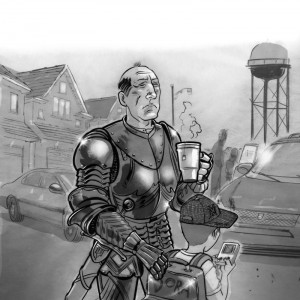 Magazine
MagazineAnger in action
I first heard about fathers’ rights groups when I was working at a Vancouver drop-in centre for women several years ago. A family law advocate for a similar organization in a neighbouring community told me about a group of men who would show up at court in matching T-shirts to support male members of their organization who were engaged in custody and access disputes with their ex-partners.
-
 Magazine
MagazineLetter from the editor
This issue of Briarpatch is a temporary androgynous zone in the no-man’s land between male and female. It is addressed neither (just) to women nor (just) to men, but to anyone who is serious about putting principles of social justice into practice.
-
 Magazine
MagazinePolyamory in practice
Conversations about polyamory – the practice of having more than one intimate partner at a time – are slowly finding their way into public consciousness. Two newly published books (Open: Love, Sex, and Life in an Open Marriage and Opening Up: A Guide to Creating and Sustaining Open Relationships) reflect an increasingly popular postmodern view of love and relationships led by post-second-wave feminist and queer communities.
-
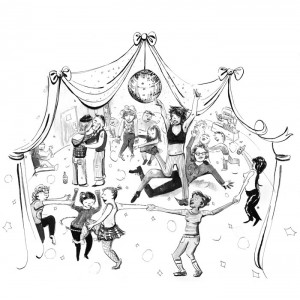 Magazine
MagazineQueering the scene
On the third Saturday of every month, a throng of self-identified queers descend on an East Vancouver community centre in search of cheap drinks, good music, and the chance to dance off the month’s drudgery in a safe and inclusive environment.
-
 Magazine
MagazineA pound of flesh
Yesterday I received a long-awaited item in the mail: an application package for admittance to the Gender Identity Clinic at the Centre for Addiction and Mental Health in Toronto. This is the golden ticket for Canadian transsexuals who are in need of medical care (including hormones, surgeries and counselling) and who can’t afford to pay for it themselves. Toronto’s Centre for Addiction and Mental Health, commonly referred to as CAMH, is the gateway to it all.
-
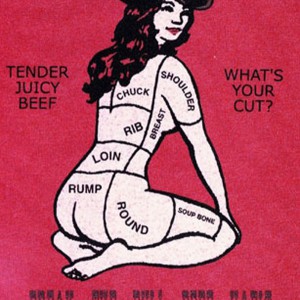 Magazine
MagazineCruising the red meat district
Carol Adams’ The Sexual Politics of Meat is an indictment of the gender politics inherent in a meat-eating culture. It’s also an indispensable resource for those who want to delve into the complex relationship between consumption, hierarchy and domination. With great clarity, Adams lays out the interconnectedness of meat eating and male dominance, of animal oppression and the oppression of women – in short, the sexual politics of meat.
-
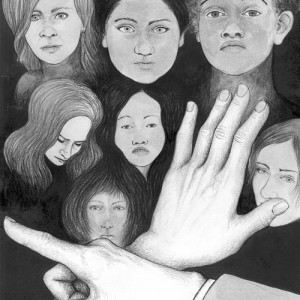 Magazine
MagazineSex work and the state
Kara Gillies is a sex worker and activist who has been advocating for sex workers’ rights and well-being for the past two decades. She co-founded both the Canadian Guild for Erotic Labour and the former Toronto Migrant Sex Workers Advocacy Group. Gillies hosted a sex worker rights radio show on CIUT 89.5 FM called The Shady Lady and was a health worker at the Hassle Free Clinic. She has been involved with Maggie’s (www.maggiestoronto.ca), a Toronto-based sex worker-run organization, for 18 years and currently coordinates its education program.
-
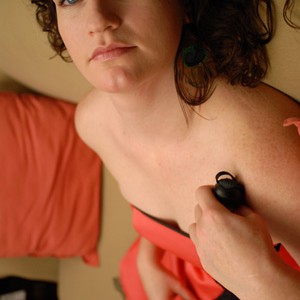 Magazine
MagazineStrange bedfellows
What on earth is feminist porn, anyway? In an effort to answer that question, I tracked down Chanelle Gallant, the former manager of Good For Her and founder of the Feminist Porn Awards.
-
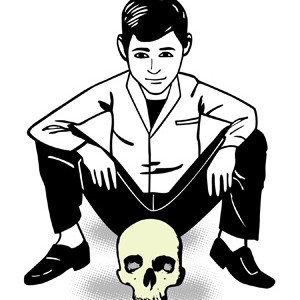 Magazine
MagazineFinding his better half
Men’s social conditioning takes a tremendous toll on not just their relationships, but also on their health. Those who want this to change, Calvin Sandborn argues, will have to come to terms with the concept of patriarchy-and with their own emotions.
-
 Magazine
MagazineLetter from the editor
Briarpatch always seeks to connect theory and practice in its coverage, but in my experience, there is no issue that is at once so theoretical and so practical, so simultaneously personal and political, as gender.
-
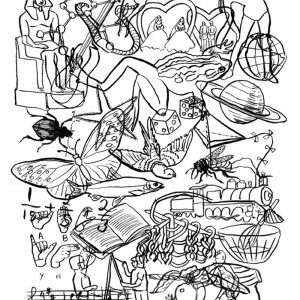 Magazine
MagazineWon’t get schooled agaiin
A vocal minority of home-schoolers are progressives, even radicals, who home-school as a way to offer their children the freedom to explore their intellectual interests and to express themselves in a loving, nurturing environment. -
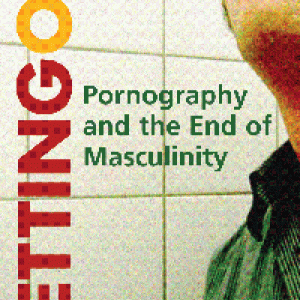
-
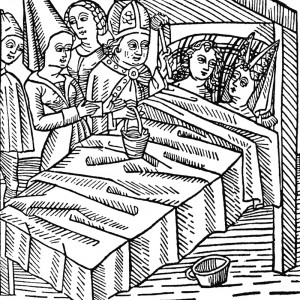 Magazine
Magazine10 straight questions
Let’s face it: there are lots of heterosexuals out there! Why not take a few moments to learn a little more about them?

